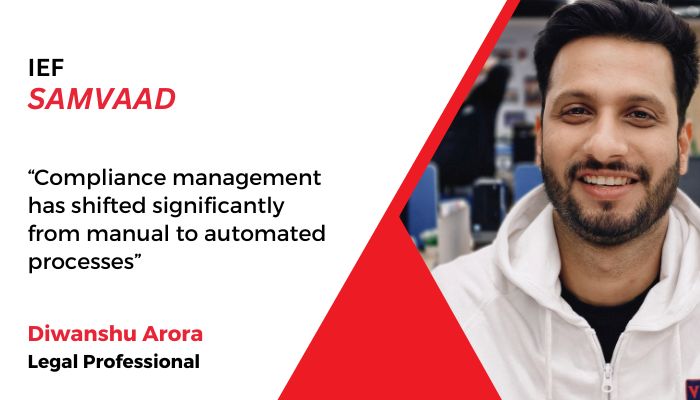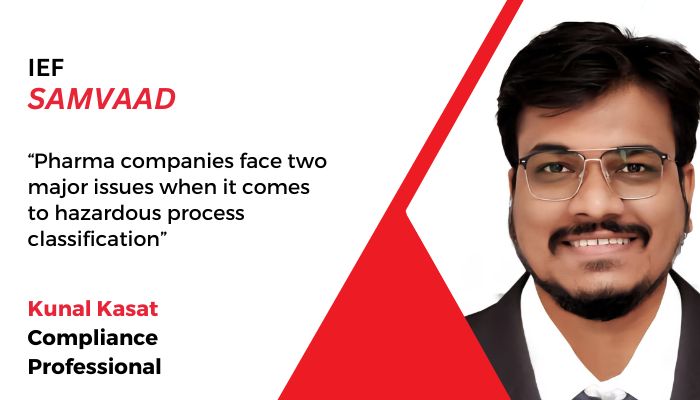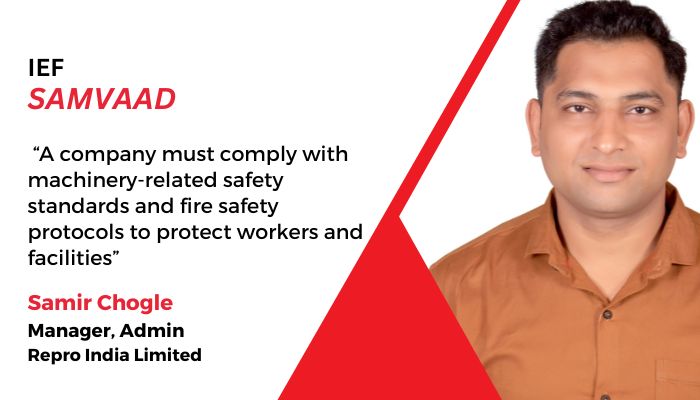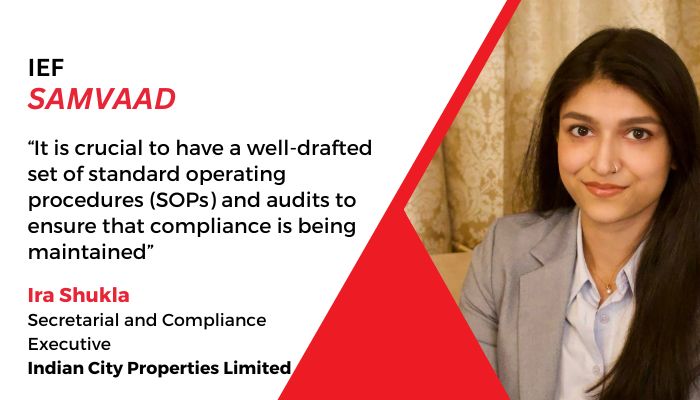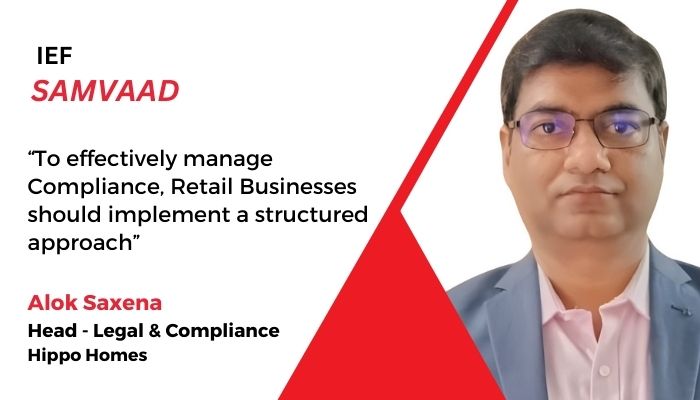Diwanshu Arora, speaks to the India Employer Forum about the compliance challenges in the consumer electronics industry, technology influence in compliance processes and career tips for upcoming compliance professionals…
1.What are the biggest compliance challenges faced by entities in your sector?
The consumer electronics industry is navigating a highly complex compliance landscape. One of the foremost challenges revolves around retail structures– whether companies can operate under a single-brand or multi-brand retail model and whether they can sell different categories of electronic goods under one entity at their stores.
Beyond this, several other regulatory areas create challenges:
- Competition Law- Every agreement or transaction must avoid anti-competitive practices. The company must ensure that no arrangement harms consumer interests or distorts market parity.
- Data Privacy- Irrespective of sector, any company collecting personal data must ensure that data is used strictly for its intended purpose and stored in compliance with requirements, including data localisation in India.
- Legal Metrology- Packaging and labelling compliance is extremely detailed. For instance, smartphone boxes must display prescribed information with exact specifications for font size, numerical representation, and placement. Even minor deviations can lead to non-compliance.
Balancing these overlapping frameworks on a day-to-day basis is one of the biggest challenges companies face.
2.How do you stay updated with changing laws and rules?
Currently, much of the compliance community relies on a combination of official and informal sources. These vary from real-time alerts that keep companies updated on regulatory changes to professional networks and LinkedIn, which have become more than just a recruitment platform; it is now a hub where regulatory updates are shared in real time. Also, specialised regulatory update services, which are beginning to fill this gap by providing structured, automated alerts.
LinkedIn and social media outlets can be scanned for updates. While this helps, there is a pressing need for structured digital tools that can deliver timely, accurate, and centralised updates to reduce reliance on manual monitoring. Some regulatory update platforms are beginning to emerge, but adoption across industries is still limited.
3.How has technology changed the management of compliance processes?
The compliance function has been transformed by technology. Back in the 2015s, compliance monitoring was heavily manual. Teams spent countless hours rummaging government websites, many of which were rarely updated and maintained multiple Excel trackers just to ensure adherence.
Compliance management has shifted significantly from manual to automated processes. Earlier, monitoring compliance meant hours of website checks and manual record-keeping, often on outdated or inconsistent government portals. Today, legal tech and AI-driven tools are streamlining compliance by delivering real-time updates, automating standard agreement drafting and NDA reviews, enabling clause extraction and obligation tracking with a single click, and eliminating the need for multiple Excel trackers. This transformation has made compliance more efficient, reduced errors, and freed up teams to focus on higher-level strategic issues rather than routine monitoring.
4.What recent changes in compliance requirements have impacted industries the most and how are organisations adapting?
Two of the most heavily regulated sectors in India are Fintech and Insurance. Recent enforcement actions highlight the growing scrutiny. PolicyBazaar was recently penalised by the Insurance Regulatory and Development Authority of India (IRDAI) for aggregator regulation violations, while PhonePe was fined by the Reserve Bank of India (RBI) for breaches under the Prepaid Payment Instruments. The DPDPA, meanwhile, is a cross-sectoral development that impacts all industries handling personal data. The penalties for non-compliance are significant, pushing organisations to adopt more rigorous safeguards. Similarly, the online gaming industry has faced intense regulatory tightening, leading to layoffs and business restructuring. Companies are responding in different ways, but phased implementation has proven effective. For instance, some firms began aligning their practices with DPDPA requirements even before the rules were finalised, adopting a conservative, proactive approach rather than waiting for enforcement deadlines.
5.What advice would you give to someone new to the world of compliance?
Compliance is a field where skills outweigh tools. The most important quality is the ability to research, read, and interpret laws independently. The most important skill for compliance professionals is strong research ability. While AI tools and automation are valuable, individuals must develop habits that might help them in the long run. Laws, rules, and notifications must be understood directly at their source. There should be a habit of monitoring multiple platforms for updates. Staying informed about sector-specific and general regulations, even if not directly applicable (e.g., online gaming laws or RBI guidelines) is important. In compliance, curiosity, and awareness are essential. You don’t need to master every detail of every regulation, but you must know what to look for and where to look when issues arise. That foundational habit will serve far better than relying solely on any tool.
About Diwanshu Arora
Diwanshu Arora is a highly experienced legal professional with over six years of expertise spanning contracts, regulatory advisory, and transactional support. He has worked with both agile startups and reputed corporates such as Spice Money, Tata 1MG, and vivo Mobile. His core strengths include regulatory compliance across fintech, internet, marketing, and electronics industries, as well as drafting and negotiating commercial agreements, brand protection, tender documentation, data privacy, and advisory on business transactions. Known for aligning law with business goals, Diwanshu focuses on delivering practical, growth-oriented legal solutions that safeguard interests while driving innovation.
Disclaimer: The opinions and views expressed in this article, including any accompanying data, are the sole responsibility of the author and should not be construed as reflecting the official policy or position of India Employer Forum.

